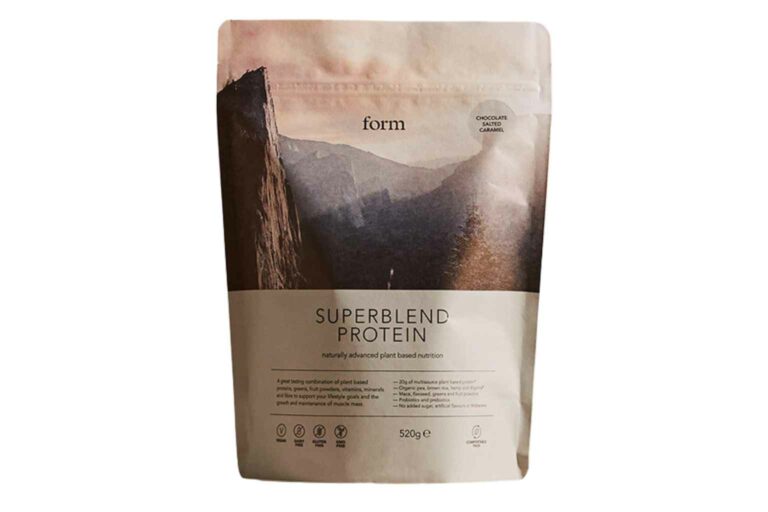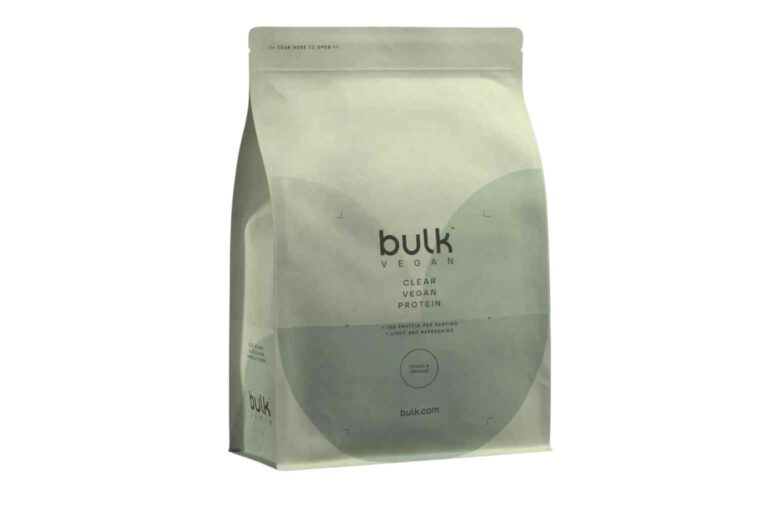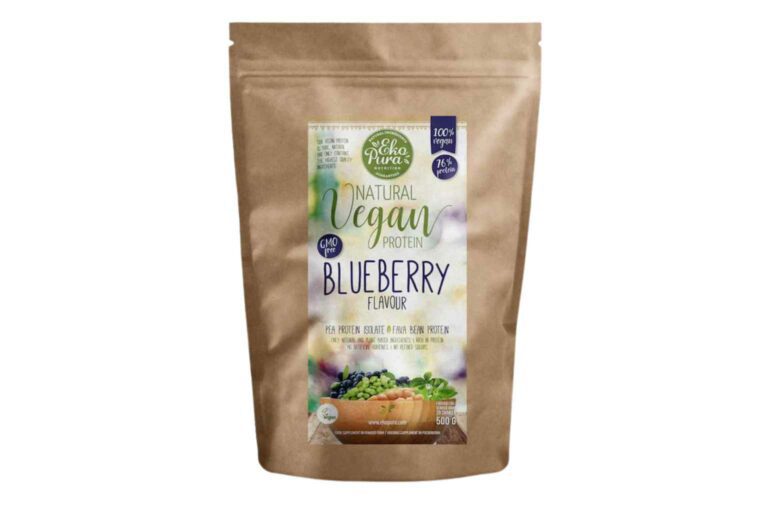
Sustainable Protein Powder: Introduction
Welcome to our latest weekly sustainability tip where today, we’re stirring up the conversation around sustainable protein powder. Traditional protein powders often have a significant environmental impact, mainly due to their reliance on animal-based ingredients and plastic packaging.
But there’s a sustainable path forward: plant-based, eco-friendly protein powders. In this article, we’ll explore the benefits of these sustainable options, the environmental impact of conventional protein powders, and highlight brands that are leading the change. Join us as we delve into the world of sustainable protein powder, where fitness meets eco-consciousness. These alternatives aren’t just better for your health; they’re a positive step towards reducing our environmental footprint.
Traditional Protein Powder: A History
The roots of protein powder can be traced back to the burgeoning bodybuilding culture of the early 20th century. Initially, bodybuilders and athletes relied heavily on natural protein-rich diets to enhance muscle growth and recovery. However, the desire for more convenient and efficient protein sources led to the development of protein supplements. The 1930s witnessed the introduction of powdered forms of protein, primarily derived from milk and eggs, marking a significant milestone in the history of dietary supplements.
The popularity of bodybuilding icons in the 1950s and 1960s, like Steve Reeves and Arnold Schwarzenegger, propelled the use of protein powder into the mainstream. These figures not only popularised the sport of bodybuilding but also highlighted the importance of protein in achieving muscular physiques. This era saw a surge in the demand for protein supplements, leading to innovations in protein extraction and processing techniques.
By the 1980s and 1990s, protein powder had become an integral part of the fitness and wellness industry. The advancement of food technology allowed for the extraction and purification of protein from various sources, making protein supplements more accessible and palatable.

The fitness boom of these decades further cemented protein powder’s role as a staple in the diets of not just bodybuilders but also recreational gym-goers and health enthusiasts. The widespread availability and diverse range of protein powders made personalised nutrition more achievable, catering to a broad spectrum of dietary needs and fitness goals.
Traditional Protein Powder: The Environmental Impact
Traditional protein powders, particularly those derived from animal sources, have a considerable environmental impact. The production of animal-based proteins is resource-intensive, requiring significant amounts of water, land, and feed. This process also contributes to greenhouse gas emissions, notably methane, a potent contributor to climate change. Furthermore, the reliance on animal farming for these proteins often leads to habitat destruction and biodiversity loss. In addition to their animal-derived ingredients, many traditional protein powders come packaged in single-use plastics.
These plastics, often not recycled, end up in landfills or oceans, contributing to the growing problem of plastic pollution. The production of these plastic containers itself is energy-intensive and involves the use of fossil fuels, further exacerbating their environmental impact.
Microplastics shed from these containers also pose a significant environmental hazard. When discarded, they break down into smaller particles that contaminate water bodies and harm aquatic life. This microplastic pollution has far-reaching consequences on marine ecosystems and can eventually enter the human food chain.
The transportation of traditional protein powders from manufacturing sites to retail outlets adds another layer to their carbon footprint. This global distribution network relies heavily on fossil fuels, contributing to air pollution and global warming.

Overall, the production, packaging, and distribution of traditional protein powders reveal a substantial environmental cost. This underscores the urgent need for more sustainable protein powder alternatives that can provide the same nutritional benefits with a reduced ecological footprint.
Sustainable Protein Powder: What to Look For
When selecting sustainable protein powder, it’s essential to consider several factors to ensure your choice aligns with eco-friendly practices. Firstly, prioritise plant-based ingredients. Options like pea, rice, and hemp proteins are not only sustainable but also provide a complete amino acid profile.
These ingredients typically require fewer resources and have a lower environmental impact compared to animal-based proteins.
Next, examine the production process. Opt for brands committed to sustainable practices, including minimal use of water and renewable energy. Transparency in their supply chain is crucial to verify the ethical sourcing of ingredients.
Packaging is another critical aspect. Choose protein powders packaged in recyclable or compostable materials to minimise plastic waste. Some brands even offer refillable options, significantly reducing packaging needs.
Finally, consider the brand’s overall commitment to sustainability.

This can include support for environmental initiatives, carbon offset programs, and community engagement. By considering these factors, you can make informed choices and choose sustainable protein powder that contributes to a healthier planet, aligning your fitness goals with environmental stewardship.
Sustainable Protein Powder: Three of our Favourite Brands
Form
Based in the UK, Form is notable for being the first sustainable protein powder brand in the UK to achieve B Corp certification. They offer a range of dairy-free and vegan protein powders in flavours like Chocolate Peanut, Tiramisu, and Vanilla. Their products are gluten-free, GMO-free, soy-free, and come in plastic-free, compostable packaging. Form also supports the Form Feeding Fund at Bansang Hospital in The Gambia.
Head over to Form’s website and use code REWARD10 for £10 off when you spend over £60 or REWARD15 for £15 off when you spend over £80.

Bulk
Also based in the UK, Bulk provides a multi-protein vegan blend sustainable protein powder to increase protein intake as part of a healthy, plant-based lifestyle. Their sustainable protein powders combine pea protein, brown rice protein, pumpkin protein, flaxseed powder, and quinoa flour. Bulk is committed to sustainability, having transitioned over 90% of its packaging materials to sustainable alternatives. They are a great choice for those seeking sustainable protein powder!
If you head over to the Bulk website now, you will receive a Free Shaker Bottle with all Orders Over £40.

Ekopura Nutrition
Based in Amsterdam, offers a range of sustainable protein powder and organic protein powder that cater to various health and fitness goals. Their products are known for being organic, gluten-free, lactose-free, and vegan, making them suitable for a wide range of dietary needs. Committed to environmental responsibility, Ekopura focuses on health-promoting, eco-friendly supplements, beneficial for the body and nature. Their family-run business ethos underlines their dedication to creating healthier, sustainable nutritional options.
Head over to their website and use code playitgreen10 for a 10% discount on your first order!

Sustainable Protein Powder: Wrap Up
Embracing sustainable protein powder is more than a health choice; it’s a step towards a more eco-friendly lifestyle. Every sustainable protein powder we choose is a vote for a cleaner environment and a more responsible supplement industry. By opting for brands that prioritise sustainability, we can make a significant impact, even in something as every day as our choice of protein powder.
Let’s embrace this simple yet effective change and continue to seek out ways to reduce our environmental footprint. Remember, in the journey of sustainability, every choice counts, and it can start right with our workout routine and sustainable protein powder.
Play It Green: Empowering Your Sustainability Journey
Ready to take your commitment to sustainability to the next level? Play It Green stands as your partner in creating positive environmental change. From educational resources on sustainable practices and signposting to sustainable services to initiatives like tree planting and social giving, Play It Green offers a holistic approach to environmental stewardship.
Join us in the journey toward sustainability—embrace eco-conscious practices and be a force for positive change in our world. All whilst staying relevant, meeting legislation and aligning with the values of today’s consumers and employees.







